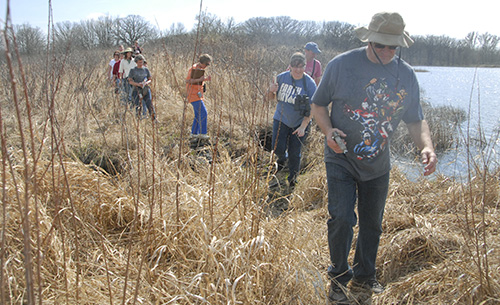Master Naturalist
Engaging volunteers in local natural resource projects
The Minnesota Master Naturalist program promotes awareness, understanding and stewardship of Minnesota’s natural environment by developing a corps of well-informed citizens dedicated to conservation education and service within their communities.
A collaborative effort of University of Minnesota Extension and the Minnesota Department of Natural Resources (DNR), the program was created in 2005 with a grant from the National Science Foundation. Master Naturalist volunteers contribute to science-based projects such as monitoring monarch butterfly larvae, managing invasive species, bird banding and evaluating stream ecology. These citizen scientists engage in real-world field work that helps Extension researchers and DNR professionals assess changes in natural habitats and environments.
Hikers, bird watchers, phenologists and wildflower lovers enjoy being Master Naturalist volunteers. The program recruits and trains staff from nature centers, environmental organizations, state parks and wildlife refuges to teach the volunteer training course and continuing education classes.
Master Naturalists complete a 40-hour, hands-on course in natural history, environmental interpretation and conservation stewardship. The program focuses in-depth on Minnesota’s major biomes through courses such as:
- Big Woods, Big Rivers
- Prairie and Potholes
- North Woods, Great Lakes


